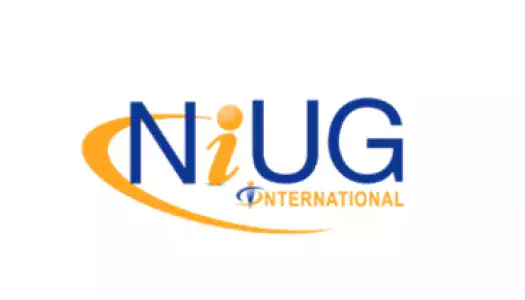Everyone knows that sitting in an audience listening passively to a speaker is not an effective way for adults to learn, yet that’s still the norm at many conferences and educational events. It’s time for associations to upend ineffective education with flipped learning.
Flipped learning is the brainchild of two high school science teachers who decided in 2007 to have their students watch preparatory videos online before coming to class. Instead of using valuable face-to-face time to lecture while students sat passively listening, they used that time for hands-on and deeper-dive activities.
With flipped learning, the student learns about something first through assigned reading or videos, and then puts that knowledge to work in the classroom through group exercises, case studies, role-playing, problem-solving, or facilitated discussions.
Benefits of Flipped Learning for Adult Learners
Although flipped learning has been used successfully for a decade by high school and college instructors, associations have been slow to adopt it for educational events, like conferences. We’ve been hearing and reading for years that lectures are not an effective format for adult learning yet that’s still the default format for many conference sessions. Adding five minutes for Q&A at the end of a session does not make it interactive!
Let’s take a look at the benefits of flipped learning for conference attendees.
Attendees come prepared to learn.
Because they have a chance to get familiar with the session topic before showing up for the conference, attendees are more prepared to participate in effective learning activities, like discussions and exercises. They might have even already “met” the instructor and fellow students in the online community associated with the conference.
Learning is spaced and effective.
How much do you remember from the last “talking head” session you attended? When information is crammed into 45 minutes or an hour, our brains become overwhelmed. We don’t fully digest what we hear. By flipping the session room, you can space out the learning into digestible chunks and encourage attendees to recall information to make sure they retain it.
Face-to-face time is better used.
The session room becomes a workshop, not a lecture hall. Time isn’t wasted on transferring knowledge—that can be done at home on the attendee’s own time. Instead, session time is devoted to strengthening skills, discussing challenges, solving problems, and putting knowledge into context—that’s how adults learn.
Pre-work levels the playing field.
Because everyone has reviewed the prerequisite information before the session, instructors don’t have to spend time going over the basics for the benefit of a few to the detriment of many. They can assume everyone is at the same level and spend the session time raising the bar and increasing and deepening everyone’s level of knowledge.
Instructors get a preview.
If, before the conference, attendees can ask questions and make comments about pre-session content, instructors can better gauge their needs and interests. They can tailor session activities to better deliver value to attendees.
Attendees enjoy an extended conference experience.
Usually, a conference experience is limited to a few days on site. With flipped learning, attendees have the opportunity to meet their instructor and fellow students before the event and become part of a learning community.
How to Use Your LMS for Flipped Learning
Your association can introduce members to your learning management system (LMS) and online learning programs by offering a flipped learning experience in conjunction with some of your conference workshops and sessions. Test the concept with an experienced instructor—one who understands adult learning principles.
At first, offer these experiences at no additional charge while you test the new format. Incentivize participation by offering extra continuing education credits. After seeing positive reviews and results, you can charge more for these enhanced sessions or workshops.
Sell the benefits of flipped learning.
In conference marketing materials and session descriptions, explain the value and logistics of the flipped learning concept. Make sure participants understand they will be required to do the pre-work.
Keep in touch with participants before the conference.
At least one month before the conference, create an online course for the flipped session where participants do the required pre-work: read articles, watch videos, and/or participate in online community discussions. During the course, send weekly notifications to participants that highlight additional resources or interesting community discussions. Make sure the instructor is available to participate in community discussions and “office hours.” If participants start lagging behind, give them a gentle email nudge.
Assess participants’ level of knowledge.
Ask participants to take a self-assessment quiz before and/or after they complete the prerequisite work. Instructors can get a feel for their general level of knowledge, gauge the effectiveness of pre-work materials, and know which students might need additional help. You could also poll participants to learn more about their interests and needs.
Encourage community building.
Conference marketing consultant Donna Kastner said: “The smartest people aren’t always on stage. They’re often in the room.” That room is your online community and your session room. Participants can use your LMS’ online community to start getting to know each other before they meet in person. They can reflect together on the reading and video assignments, find peers with same challenges, share ideas, and help solve each other’s problems.
Track attendee progress.
Use your LMS to track completion of the work. In some cases, you could require attendees to complete the pre-work before registering for the enhanced session.
If you don’t track their progress, you can expect some attendees to not do the pre-work despite your best efforts. Tell instructors to not reteach materials because some attendees haven’t done the pre-work—that approach penalizes the attendees who did the right thing. Don’t cater to the slackers, they dropped the ball, not you.
Create a new educational product.
After the conference, you can sell the pre-work course and recorded conference session as part of a new course or digital badge. Or, you could use this mini-course as a lead magnet to attract prospective students to a more intense, related course.
Before You Get Started with Flipped Learning
As with any new endeavor, a few issues have to be considered before getting started with flipped learning.
Pick the right sessions. You may have more success using flipped learning for pre-conference workshops or at smaller conferences with a limited number of tracks.
Don’t overwhelm busy members with too much pre-work. If they will be away from work several days for your conference, their workload and stress level may already be under pressure. Test how much pre-work is appropriate. Talk to flipped learning students to see what works best.
Flipped learning requires more instructor involvement than regular conference sessions since they have to develop additional materials and support. You may need to provide additional compensation for their time and effort.
Also, flipped learning instructors must understand the principles of adult learning. They must know how to involve attendees in effective learning activities—they can’t stand up in the front of the room and lecture. The role of the instructor changes from being a presenter of content to a coach who helps develop the knowledge of their students.
Flipped learning provides an opportunity for members to deepen their knowledge and develop relationships with peers. It introduces members and prospects to your online learning programs, but more importantly, flipped learning helps members get the most value possible from your association’s educational events.








